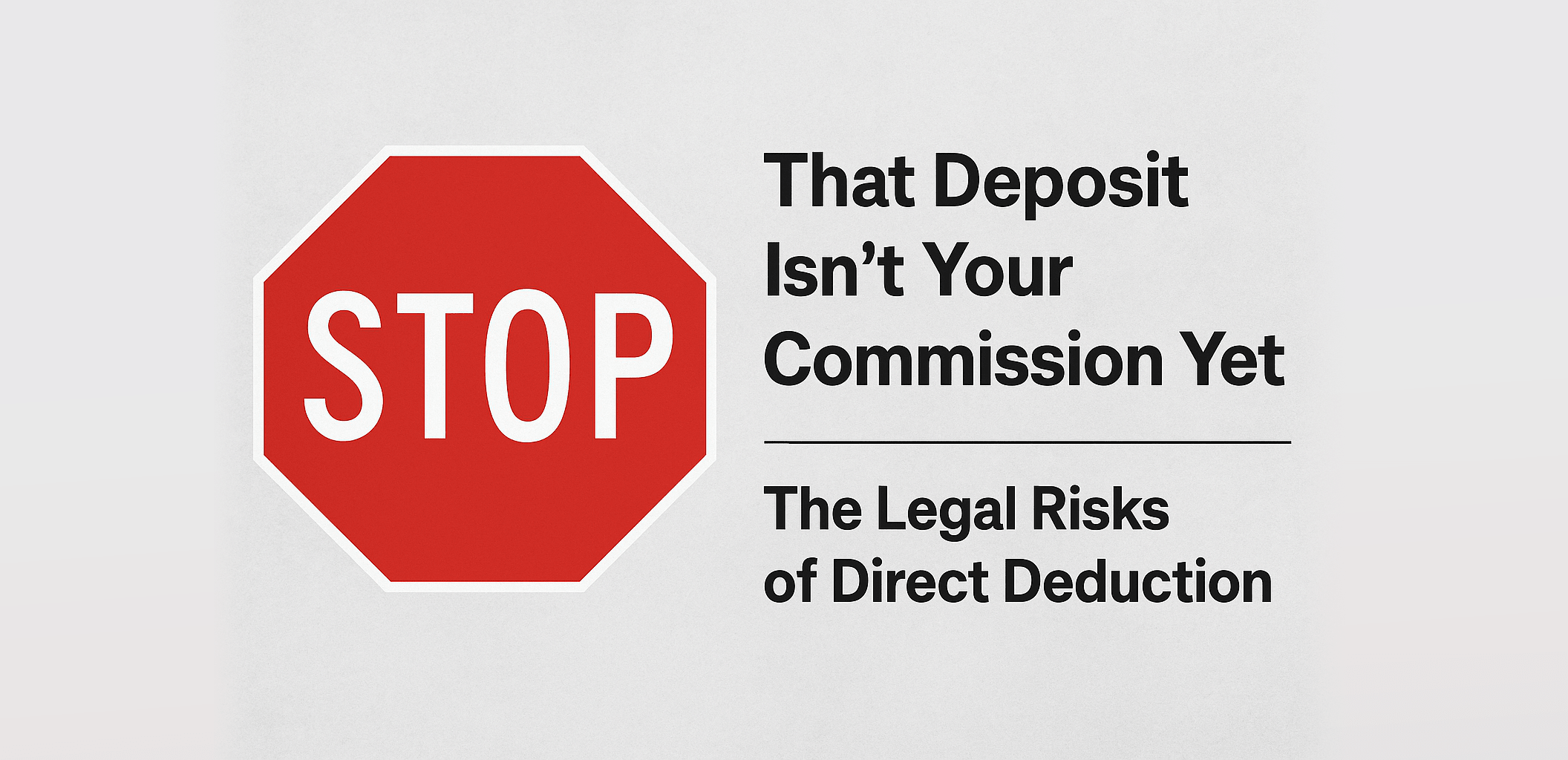Stop: That Deposit Isn't Your Commission Yet. The Legal Risks of Direct Deduction.

Deducting your fee directly from a client's deposit is a common shortcut. Without explicit written consent, it's not just risky—it could be considered misappropriation of funds. Here's how to do it right.
The Common Shortcut
In Malaysia’s fast-paced subsale and rental market, efficiency is key. A common practice among agencies is to:
- Collect the buyer’s/tenant’s deposit
- Hold it in a client account as a stakeholder
- Upon signing the SPA or Tenancy Agreement, directly deduct their commission
- Refund the balance to the seller/landlord
This feels efficient—it cuts out the step of invoicing and waiting for payment. However, unless you have explicit written authorization, this "shortcut" is unlawful and puts your license at risk.
Why This Practice is High-Risk
Money held in a client account is trust money. You are its custodian, not its owner. Using it for any purpose—even to pay your own fee—without clear consent is a breach of that trust.
The potential consequences are severe:
- Professional Misconduct: The Board (BOVAEP/LPEPH) may view this as a misuse of funds, leading to disciplinary action.
- Legal Liability: It could be construed as misappropriation, opening you up to civil or even criminal complaints.
- Reputational Damage: If a client disputes the fee or the amount, you immediately look unethical. Recovering from a trust-based dispute is incredibly difficult.
When Is It Legal to Deduct?
Only when you have an irrevocable, written authorization. This right must be clearly stated in a document signed by the client before you receive the deposit.
This clause should be included in one or more of the following:
- The Offer to Purchase (signed by the Buyer)
- The Letter of Offer to Rent (signed by the Tenant)
- The Exclusive Agency Agreement (signed by the Seller/Landlord – this is the most crucial one)
A Sample Clause to Get You Started
(Always have your lawyer review and adapt this for your specific use)
"The Client hereby irrevocably authorizes [Agency Name], as stakeholder of any deposit received pursuant to this agreement, to deduct the Agency’s agreed professional commission and any applicable taxes from the said deposit upon the successful execution of the Sale and Purchase Agreement/Tenancy Agreement, and to remit the balance forthwith to the entitled party."
The Safe and Compliant Alternative
If your documents do not contain this explicit authorization, you must follow this safer procedure:
- Hold the full deposit in the client account until completion.
- Release the entire deposit to the seller/landlord.
- Issue a formal invoice for your professional fee.
- Collect payment via a separate transaction.
It’s one extra step, but it’s a step that protects your career.
Your Action Plan
Review your standard documents immediately—your Offer to Purchase, Letter of Offer, and Agency Agreement. If they lack a clear right-to-deduct clause, consult with a lawyer to have one drafted. Do not assume permission; get it in writing.
Convenience is never a valid excuse for compromising on legality and professional ethics. Protect your agency, your license, and your reputation by ensuring your processes are airtight.
Disclaimer
This article is for general information purposes only and does not constitute legal advice. Please consult with a qualified lawyer for advice on your specific documents and situation.











































































































